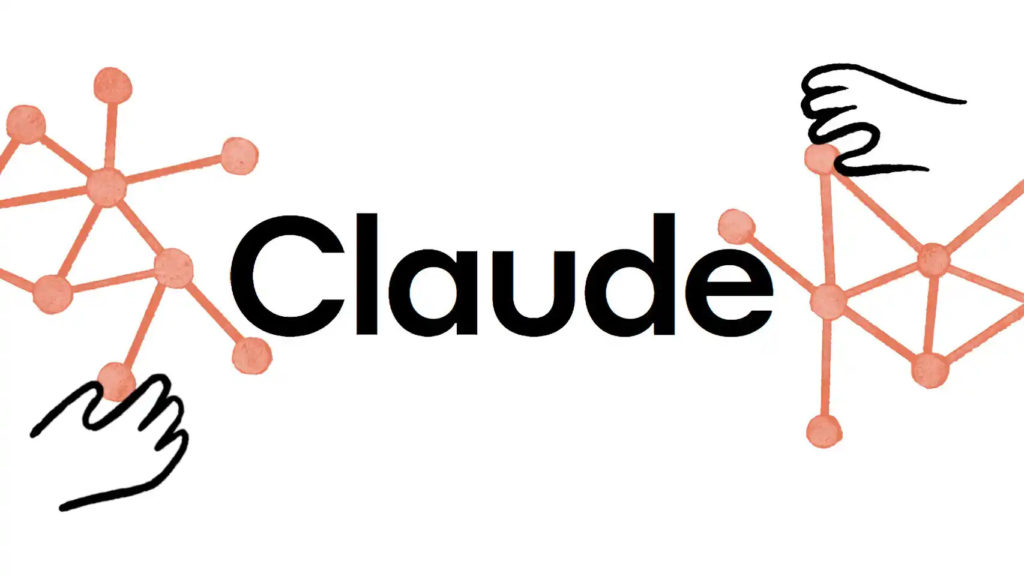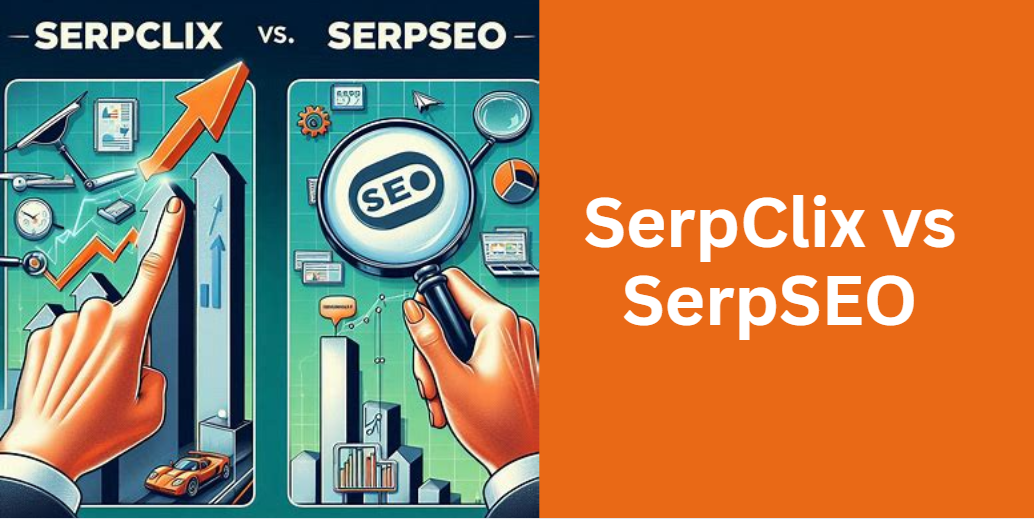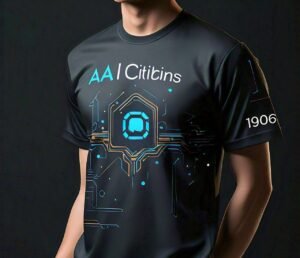Exploring Claude AI: A User-Friendly Guide to an Advanced Language Model
“Claude AI”In recent years, artificial intelligence has transformed the way we communicate and interact with technology. One of the most exciting developments in this field is Claude AI, a state-of-the-art language model designed to generate human-like text responses. In this article, we will explore what Claude AI is, how it works, its features, applications, and its implications for users. We will also discuss how it compares to other AI models and why it matters in today’s digital landscape.
What is Claude AI?
Claude AI is an advanced artificial intelligence language model developed to engage users in meaningful conversations. Named after Claude Shannon, the father of information theory, this AI model is designed to understand and generate human-like text. Claude AI can participate in various types of interactions, from casual chats to more complex discussions about specific topics.
The main goal of Claude AI is to provide users with a conversational experience that feels natural and intuitive. Whether you need assistance with a question, want to brainstorm ideas, or simply wish to engage in friendly banter, Claude AI aims to respond in a way that feels relevant and relatable.
How Does Claude AI Work?
At its core, Claude AI is built on sophisticated algorithms that utilize natural language processing (NLP) and machine learning techniques. Here’s a simple breakdown of how it operates:
- Training on Large Datasets: Claude AI has been trained on vast amounts of text data from various sources, including books, articles, and websites. This extensive training allows it to learn patterns, context, and language nuances.
- Understanding Context: When a user inputs a message, Claude AI analyzes the context of the conversation. This involves understanding not just the words used but also the intent behind them. The AI uses its training to predict what the user is asking or discussing.
- Generating Responses: Based on its understanding, Claude AI generates a response that aims to be relevant and coherent. It selects words and phrases that align with the conversation’s context, creating a fluid dialogue.
- Continuous Learning: As users interact with Claude AI, it can learn and improve its responses over time. This means that the more you chat with it, the better it can adapt to your style and preferences.
Key Features of Claude AI
Claude AI offers a range of features that make it a powerful tool for users:
- Conversational Abilities: Claude AI excels at maintaining conversations on various topics. Whether discussing current events, science, technology, or entertainment, it can provide insightful responses.
- Personalization: The more you interact with Claude AI, the better it understands your preferences. It can tailor its responses to suit your style, making the conversation feel more engaging.
- Contextual Understanding: Claude AI can remember context within a conversation, allowing for deeper discussions. It can reference previous messages, making the chat feel more like a natural human interaction.
- Multilingual Support: Claude AI can understand and respond in multiple languages, making it accessible to a broader audience. This feature is particularly useful for users who speak languages other than English.
- Versatile Applications: From customer support to creative writing assistance, Claude AI can be applied in various fields. It can help businesses automate responses, assist students with homework, or even provide writing prompts for authors.
Applications of Claude AI
Claude AI has numerous applications across different industries, showcasing its versatility:
- Customer Support: Many businesses use AI chatbots like Claude to handle customer inquiries. It can answer frequently asked questions, guide users through troubleshooting processes, and provide instant support.
- Content Creation: Writers can use Claude AI to brainstorm ideas, generate outlines, or even draft articles. It helps enhance creativity by providing suggestions and alternative perspectives.
- Language Learning: Students learning new languages can practice conversations with Claude AI. The AI can simulate real-life dialogues, helping learners improve their language skills in a low-pressure environment.
- Entertainment: Claude AI can engage users in casual chats, provide jokes, or even tell stories. Its ability to understand humor and storytelling makes it a fun companion for users looking for entertainment.
- Research Assistance: Researchers can leverage Claude AI to gather information on specific topics. It can summarize articles, explain complex concepts, and provide references, making the research process more efficient.
Comparing Claude AI to Other Language Models
While Claude AI is impressive, it is essential to compare it with other popular language models to understand its strengths and weaknesses.
- GPT-3: Developed by OpenAI, GPT-3 is another leading language model known for its advanced conversational abilities. While both models can generate human-like text, GPT-3 has a broader user base and is often more widely integrated into various applications.
- BERT: Developed by Google, BERT is focused on understanding the context of words in search queries. While it excels at comprehension and context, it is less conversational than Claude AI, which is designed for engaging dialogue.
- Microsoft’s Turing-NLG: This model is one of the largest language models developed, capable of generating high-quality text. However, it may not be as fine-tuned for conversational interactions as Claude AI.
Each model has its unique strengths, and the choice of which to use often depends on the specific application and user needs.
Safety and Ethical Considerations
As with any AI technology, safety and ethical considerations are crucial when using Claude AI. Here are some important points to keep in mind:
- Content Moderation: While Claude AI aims to generate appropriate responses, it may still produce incorrect or inappropriate content. Users should exercise discretion and critical thinking when interpreting its replies.
- Data Privacy: Users must be aware of data privacy concerns when interacting with AI models. Ensure that personal information is not shared during conversations.
- Bias and Fairness: AI models can sometimes reflect biases present in the training data. Developers must continually work to reduce these biases and ensure fair treatment for all users.
- Parental Guidance: For younger users, parental guidance is recommended to ensure that interactions with AI remain safe and age-appropriate.
Is Claude AI Better Than ChatGPT?
The comparison between Claude AI and ChatGPT often depends on specific user needs and preferences. Here are some key points to consider:
- Performance: Both Claude AI and ChatGPT are based on advanced neural network architectures that excel in generating human-like text. Claude AI, developed by Anthropic, is designed to prioritize safety and ethical considerations in its responses, which can be a crucial aspect for some users. ChatGPT, developed by OpenAI, is widely used and has been integrated into numerous applications, making it highly accessible.
- Conversational Style: Users may find differences in the conversational styles of the two models. Claude AI tends to be more focused on maintaining a safe and respectful dialogue, while ChatGPT is known for its versatility in handling a wide range of topics, including more creative or humorous interactions.
- Use Cases: Claude AI is often used in contexts that prioritize safety and user experience, making it ideal for businesses focused on customer service or educational purposes. ChatGPT, on the other hand, is used in various applications, from content creation to personal assistants, due to its flexibility.
- Updates and Community: ChatGPT benefits from a large community and frequent updates, which contribute to its capabilities. Claude AI, while newer, also aims to evolve based on user interactions and feedback.
In summary, whether Claude AI is better than ChatGPT depends on individual preferences regarding conversation style, use cases, and the importance of safety features.
How to Use Claude AI for Free?
Using Claude AI for free is straightforward, and there are several ways to access it:
- Web-Based Access: Claude AI can be accessed through its official website or platforms that have integrated its services. Users typically can start using it without needing to create an account, although registration may provide additional features.
- API Access: For developers and tech-savvy users, Claude AI may be available through API access. Some platforms offer free tiers for developers to experiment with AI functionalities. Check the specific API documentation for usage limits and guidelines.
- Third-Party Integrations: Some apps and platforms may integrate Claude AI into their services, offering free access to users. Look for applications that leverage Claude AI for chatbots, customer support, or creative writing assistance.
- Community Trials: Occasionally, Anthropic (the company behind Claude AI) may offer trial periods or community access events that allow users to explore the AI for free. Stay updated by following their official announcements.
What is Claude AI For?
Claude AI serves a variety of purposes, making it a versatile tool for both individuals and businesses. Here are some common applications:
- Customer Support: Many businesses use Claude AI to power chatbots that handle customer inquiries, provide information, and assist with troubleshooting. Its ability to generate relevant responses makes it an excellent tool for enhancing customer experience.
- Content Creation: Writers and marketers can utilize Claude AI to generate ideas, outlines, or even full articles. It can assist in brainstorming sessions, making the creative process more efficient.
- Language Learning: Claude AI can be a valuable resource for students learning new languages. It can simulate conversations, helping learners practice their skills in a safe and interactive environment.
- Research Assistance: Researchers can use Claude AI to summarize articles, explain complex topics, and gather information efficiently. Its ability to generate concise explanations can streamline the research process.
- Entertainment: Users can engage in casual conversations or storytelling with Claude AI. Its conversational abilities make it a fun companion for light-hearted chats.
Is Claude AI Trustworthy?
Trustworthiness is a critical consideration when using any AI service, including Claude AI. Here are some factors to keep in mind:
- Safety Features: Claude AI is designed with a focus on safety and ethical considerations. Developers have implemented measures to reduce the likelihood of generating harmful or inappropriate content. This focus on user safety can enhance trust in the service.
- Data Privacy: When using Claude AI, it’s essential to review the privacy policies regarding data collection and usage. Ensure that personal information is not shared during interactions to maintain your privacy.
- Transparency: The developers behind Claude AI, Anthropic, emphasize transparency in AI interactions. They strive to provide clear guidelines about the model’s capabilities and limitations, which can help users make informed decisions.
- Community Feedback: Monitoring user reviews and feedback can provide insights into the reliability and trustworthiness of Claude AI. Engaging in community discussions can help users understand the strengths and weaknesses of the model.
- Ethical Considerations: As with any AI, there are ethical considerations related to bias and misinformation. While Claude AI aims to minimize these issues, users should remain critical of the information it provides and cross-check facts when necessary.
Claude AI Login
To access Claude AI, users typically need to log in to the platform where it is hosted. Here’s how to log in:
- Visit the Official Website: Go to the Claude AI website provided by Anthropic.
- Click on the Login Button: Look for the login option, usually located at the top right corner of the homepage.
- Enter Your Credentials: If you already have an account, enter your email and password to log in. If you are a new user, you may need to sign up for an account first.
- Password Recovery: If you forget your password, there’s usually an option to reset it via email.
Once logged in, users can start interacting with Claude AI and exploring its features.
2. Claude AI App
As of now, there isn’t a dedicated mobile app for Claude AI; however, users can access Claude AI through various web-based platforms. Here’s how to use Claude AI effectively:
- Web Access: Users can interact with Claude AI through browsers on their devices. This allows flexibility in using the AI from desktops, laptops, or mobile devices.
- Third-Party Apps: Some third-party applications may integrate Claude AI into their services, providing users with mobile-friendly interfaces to engage with the AI.
Stay tuned for updates, as the development of dedicated applications may be on the horizon.
3. Claude AI Free Access
Claude AI offers a free tier for users to explore its capabilities. Here’s how you can access Claude AI for free:
- Free Tier Availability: Users can sign up for a free account on the Claude AI platform. This account typically provides limited access to the AI’s features and capabilities, allowing users to interact with the model without any costs.
- Trial Periods: Occasionally, there may be promotional periods or events that allow users to experience premium features of Claude AI for free. Keep an eye on the official announcements for such opportunities.
- Limitations: Free access might come with restrictions on the number of queries or the complexity of tasks the AI can perform. Users can upgrade to a paid plan for enhanced capabilities.
4. Claude AI Chat
Claude AI excels at generating human-like responses in chat format. Here’s what you can expect from a conversation with Claude AI:
- Natural Conversations: Claude AI is designed to maintain engaging and context-aware dialogues. It understands user inputs and generates relevant responses, making interactions feel natural.
- Topic Versatility: You can chat with Claude AI about various subjects, including entertainment, education, technology, and more. The AI can answer questions, provide information, or simply engage in light-hearted conversations.
- Learning and Adaptation: The more you interact with Claude AI, the better it understands your preferences and style. This personalization enhances the user experience, allowing for more tailored responses.
5. Claude AI vs. ChatGPT
Both Claude AI and ChatGPT are advanced language models that offer unique features and capabilities. Here’s a comparison to help you understand their differences:
| Feature | Claude AI | ChatGPT |
|---|---|---|
| Developer | Anthropic | OpenAI |
| Focus | Safety and ethical interactions | Versatility in creative and technical tasks |
| Conversational Style | More formal and cautious | Casual and adaptable |
| Use Cases | Customer support, content creation, education | Wide-ranging, including creative writing and coding |
| Integration | Limited third-party apps | Extensive integrations across platforms |
While Claude AI focuses on maintaining a safe and respectful dialogue, ChatGPT is widely known for its flexibility in handling various topics. Users can choose based on their specific needs and preferences.
6. Claude AI Website
The official Claude AI website is the primary platform for accessing its features and functionalities. Here’s what you can find on the website:
- User Registration: New users can create accounts directly on the website, allowing access to Claude AI’s features.
- Documentation and Resources: The website provides documentation, user guides, and resources to help users understand how to interact with Claude AI effectively.
- Updates and Announcements: Users can stay informed about new features, updates, and potential changes to services through the website.
Visiting the official Claude AI website is the best way to get started and stay updated on the latest offerings.
7. Claude AI Affiliate Program
Anthropic offers an affiliate program to encourage users to promote Claude AI and earn rewards. Here’s how it typically works:
- Joining the Program: Users interested in participating in the affiliate program can apply through the Claude AI website or designated affiliate platform.
- Promotional Materials: Affiliates receive marketing materials, including links, banners, and content to share with their audiences.
- Earnings: Participants can earn commissions based on referrals or sign-ups generated through their promotional efforts. Details regarding the commission structure and payment methods can be found in the program guidelines.
The affiliate program is a great way for users to engage with Claude AI and earn rewards while sharing the benefits of the technology.
8. Claude AI 3 Details
Claude AI 3 is the latest iteration of the Claude AI model, showcasing enhancements in performance and usability. Here are some key details:
- Improved Conversational Abilities: Claude AI 3 features advanced natural language processing capabilities, allowing for more coherent and contextually aware conversations.
- Enhanced Safety Measures: The model includes updated safety protocols to minimize the risk of generating inappropriate or harmful content, aligning with its commitment to ethical AI use.
- Broader Knowledge Base: With a more extensive dataset, Claude AI 3 can provide more accurate and relevant responses across various topics.
- Customization Options: Users may have the ability to customize their interactions, allowing Claude AI to adapt more closely to their preferences.
How Much Does Claude AI Cost?
For the average user, Anthropic provides free access to their advanced Claude model through the chat interface at claude.ai, which is currently in open beta testing as of October 2023. Users can simply sign up for a free account to get started!
Subscription Options
In addition to the free tier, Anthropic offers a subscription plan called Claude Pro at $20 per month. This subscription is similar to OpenAI’s ChatGPT+ and includes several benefits:
- Increased Usage: Claude Pro subscribers can utilize 5 times more of Claude 2 compared to the free tier, allowing for a significantly higher number of messages.
- Priority Access: Subscribers receive priority access to the Claude AI interface during peak traffic times, ensuring a smoother experience.
- Early Feature Access: Claude Pro users gain early access to new features designed to enhance their interactions with the AI.
Pricing for Developers and Enterprises
Anthropic sells access to their models for different user groups, including standard users, developers, and businesses requiring enterprise-level support:
- Developers: For those interested in integrating Claude AI into applications, access is available via the Anthropic API or Amazon Bedrock. Pricing for developers is based on the amount of text processed, measured in “tokens.” Typically, 1,000 tokens is approximately equivalent to 750 words. Input and output tokens are priced differently due to the varying computational costs involved.
Token Pricing
Enterprise Customers: For businesses that require dedicated resources, AWS Bedrock offers a Provisioned Throughput option. This allows companies to reserve cloud compute capacity at a fixed cost. However, this option can be quite expensive. For instance, a minimum commitment of one month for Claude-Instant pricing can cost $29,462.40.
Hourly Reservation Pricing
The following table outlines the hourly reservation pricing for different levels of access through AWS Bedrock:
| Pricing Tier | Cost per Hour |
|---|---|
| Claude-Instant | $29,462.40 |
Conclusion
Claude AI represents a significant advancement in the field of artificial intelligence and natural language processing. With its ability to generate human-like text responses and engage in contextual conversations, it has numerous applications across various industries. From customer support to creative writing, Claude AI offers a versatile tool for enhancing communication and productivity.
Share this content:
























Post Comment